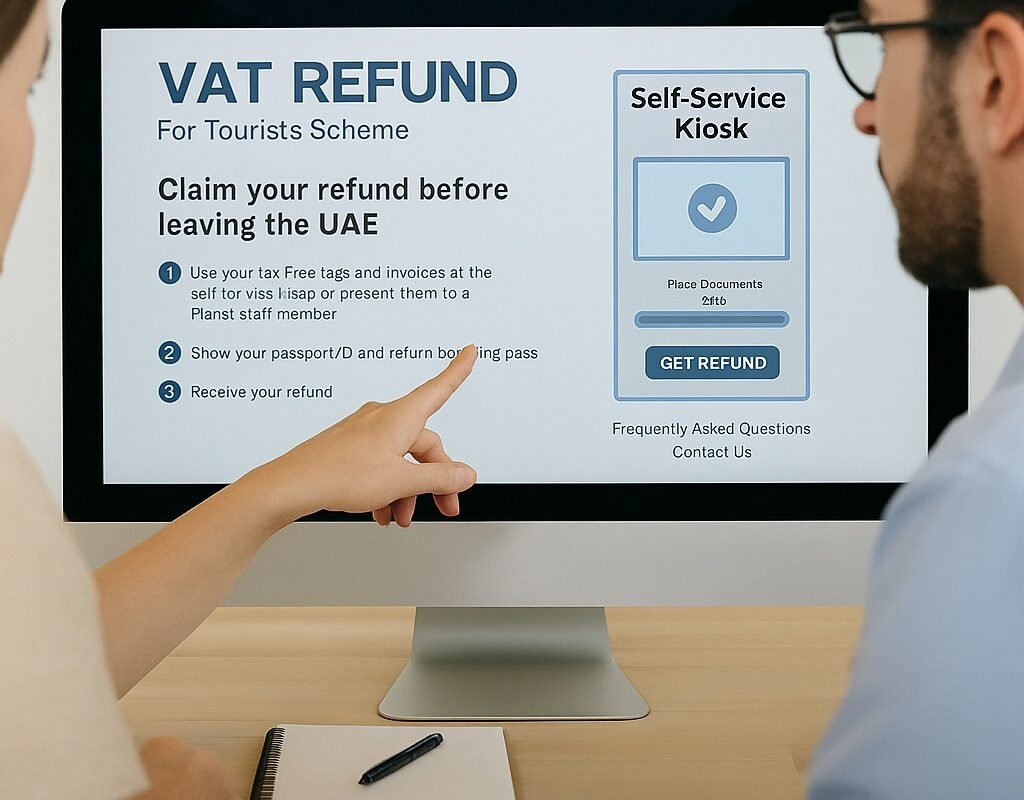Taxes in Bahrain: Overview
Bahrain is known for having a relatively light tax regime, especially for individuals. But “light” does not mean “none”: there are specific taxes, fees, and contributions that expats (and businesses) need to know about. Below are the key points:
- No Personal Income Tax: Bahrain does not impose a personal income tax on wages/salaries. PwC Tax Summaries
- Corporate Tax: There is no general corporate tax, except for oil, gas, and hydrocarbon extraction/refining companies, which are taxed at a rate of 46% on profits. KPMG Assets
- VAT (Value Added Tax): Introduced on 1 January 2019. Initially at 5%, rising to 10% from 1 January 2022, for most goods and services. bahrain.bh
- Excise Taxes: Certain products are subject to excise: tobacco, energy drinks (100%), soft/carbonated drinks (50%), etc. KPMG Assets
- Social Insurance Contributions: These apply, and expats are included (but at lower rates than nationals). KPMG Assets
- Municipal Tax on Rents for Expatriates: When expatriates rent or lease property, there is a municipality tax (often 10%) paid by the property owner. PwC Tax
- Stamp Duty / Real Estate Transfer Levy: On transferring or registering real estate. KPMG Assets
What Expats in Bahrain Need to Know regarding taxes in Bahrain ? (Taxes in Bahrain for expats)
Since you asked about expats, here are the rules as they apply specifically to foreign residents:
Personal Income
Expats do not pay income tax on salaries. All income from employment in Bahrain is free of income tax. PwC Tax SummariesSocial Insurance Contributions
While there is no income tax, expat employees and their employers are required to make social insurance contributions, but at rates lower than those for Bahraini nationals. KPMG Assets
- For example, in 2025, the employer’s contribution for expatriates is 3% of monthly salary, and the employee pays 1%, up to a salary ceiling of BHD 4,000. KPMG Assets
- These contributions cover certain social insurance schemes (notably for injury, some welfare etc.) but are not the same as a full pension scheme that nationals might have. KPMG Assets
VAT on Consumption
Expats, like residents, pay VAT on goods and services under the 10% rate (unless exempt or zero-rated). If you are a business (expat or local) whose annual taxable supplies exceed the mandatory threshold (BHD 37,500) you must register, collect, and remit VAT. bahrain.bhOther Levies & Duties
- Excise taxes on certain goods.
- Municipal tax on property rentals for expats.
- Stamp duty upon property transactions.
- Customs duties on imported goods. KPMG Assets
No Filing for Personal Income Tax
Since there is no income tax on salaries, expats are generally not required to file a personal tax return for income tax in Bahrain. But you may have obligations in your home country (for example, US citizens still have to report worldwide income etc.). Bright!Tax Expat Tax Services

Key Official Websites & Resources for Bahrain Taxes (Bahrain VAT 2025)
To manage your tax and related obligations in Bahrain, these are the official websites you’ll want to use, as well as relevant tools:
| Purpose | Website / Portal | What it Offers |
|---|---|---|
| VAT and other revenue/tax administration | National Bureau for Revenue (NBR) – Bahrain | The authority responsible for VAT, its implementation, VAT registration, filing VAT returns, etc. bahrain.bh |
| General government e-services | Bahrain National Portal (“Bahrain.bh”) | Many eServices including paying customs duties, municipal issues, etc. bahrain.bh |
| Customs Duties & Fees | Customs Affairs – eServices via Bahrain’s e-Government portal | Allows importers/exporters to pay customs fees/taxes. services.bahrain.bh |
| Social Insurance / Contributions | Social Insurance Organisation (SIO) – Bahrain | For details on contributions, eligibility, and rules. (Rates, ceilings, etc.) KPMG Assets |
| Double Taxation Treaties | Ministry of Finance / MOFNE | For certificates of residence, treaties etc. nbr.gov.bh+2mofne.gov.bh |
How to Calculate Bahrain Taxes What You’ll Owe (For Expats) Bahrain tax system explained
Although expats don’t typically pay income tax, there are a few calculations you might need to do, especially for social insurance, VAT (if running a business), or when dealing with customs or property:
- Social Insurance Contributions
Find your monthly salary.
Check the cap: e.g. BHD 4,000 is the maximum salary used for calculating contributions. KPMG Assets
Apply the rates: for expats: employee: ~1%; employer: ~3%. Multiply accordingly.
VAT
If you are a consumer, you just pay VAT included in goods/services, check invoice.
If you are a business:
- Check whether your taxable supplies exceed BHD 37,500 per year: if yes, mandatory registration. bahrain.bh
- Register via NBR portal.
- Collect 10% VAT (unless zero-rated or exempt) from customers.
- Submit VAT returns periodically (monthly / quarterly, depending on rules) via the NBR portal.
Customs Duties / Import-Related Taxes
- When importing goods, check the classification, duty rate.
- Use the e-Services portal of Customs Affairs to compute what import duties / VAT etc apply.
- Pay via the “Pay Customs Fees and Taxes” interface. services.bahrain.bh
Property & Rental Levies
- If you rent property as an expat, know that there’s a municipality tax (10%) on rentals for expats. This is likely handled through your landlord or the municipal authority. PwC Tax Summaries
- If transferring or registering real estate, stamp duty / transfer levy applies (2%, or reduced if paid promptly). KPMG Assets
Step-by-Step: How Expats Should Pay What They Owe as Taxes in Bahrain
Here is a typical sequence of steps for an expat in Bahrain, to ensure compliance with contributions, duty, VAT (if applicable), etc.:
- Confirm Your Employment Status & Salary Info
Know whether you are considered a “non-national worker/expat” under Bahraini law, your monthly salary, whether any allowances count, etc. - Determine Social Insurance Liabilities
Employer should calculate contributions (employee’s share and employer’s) according to the rate (expat: ~1% employee, ~3% employer), up to the salary cap.Ensure your employer is deducting correctly.
- If Engaged in Business / Self-Employed, Check VAT Registration
If your business (or you as an individual contractor) has revenue of taxable supplies exceeding BHD 37,500 annually, then register for VAT with NBR.
Use the National Bureau for Revenue portal.
- For Imports, Customs & Duties
Use Bahrain Customs Affairs’ e-services portal to compute what import duties / taxes are due.
- Submit required documents (commercial invoice, classification, origin, etc.).
- Pay via the customs e-service portal.
Paying Municipal / Rental Levies
If renting, check whether you or the landlord is responsible for municipality tax.
For property transactions, ensure stamp duty or property transfer levy is paid (if applicable).
- Retain Records / Receipts
Keep invoices, VAT receipts, customs declarations, salary slips showing deductions. These may be needed for audit, for proof in case of errors, or for your home country tax obligations if any.
- Use the Official Portals
For VAT / revenue: NBR portal.
For customs duties: Customs eServices.
For social insurance: SIO portal.
Many of these are integrated via Bahrain’s national eGovernment portal “Bahrain.bh”.
Apps & Electronic Services
As of the latest information, Bahrain has been expanding its e-government and digital services. However, there is no specific well-known mobile app solely for “personal tax payments” in the way one might have in countries with a comprehensive personal income tax system. But there are eServices and apps/portals for related functions.
- Bahrain eGovernment / e-Services Portal (via Bahrain.bh) – accessible via web browser. Many services (customs, revenue, paying fees) are enabled through this portal. bahrain.bh
- National Bureau for Revenue (NBR) portal – for VAT registration, return filings, VAT eServices. Likely web-based. bahrain.bh
- Customs Affairs eServices – to pay import/customs duties and taxes. services.bahrain.bh
If you are interested, I can try to find specific apps (for Android / iOS) that are used locally by expats in Bahrain for tracking or paying these contributions, though many of the services are still web-based or via national portals rather than standalone apps.
Common Misconceptions & Pitfalls regarding Taxes in Bahrain
- Mistaking “0 income tax” for “0 liabilities”: Even though you don’t pay income tax, you do have other required payments (social insurance, duties, VAT (if business), rental/municipal levies).
- Assuming all goods/services are VAT-free: Many are taxed; only certain goods/services are zero-rated or exempt. Always check.
- Overlooking employer’s responsibility: Employers generally must withhold or pay their share of social insurance; expats should verify this.
- Ignoring obligations in your home country: If you are a citizen of a country with worldwide income tax (e.g. U.S.), you may still need to report your Bahrain income even if Bahrain doesn’t tax it.
- Delays in property transaction levies or customs duties can lead to penalties or extra charges.
Recent / Important Rates & Figures (as of mid-2025)
Here are some up-to-date numbers to help you plan:
| Item | Rate / Amount |
|---|---|
| VAT standard rate | 10% (since 1 Jan 2022) bahrain.bh |
| Mandatory VAT registration threshold | BHD 37,500 per annum in taxable supplies. bahrain.bh |
| Social Insurance (expat) employee contribution | ~ 1% of salary (up to salary cap) KPMG Assets |
| Social Insurance (expat) employer contribution | ~ 3% of salary (up to salary cap) KPMG Assets |
| Salary ceiling for social insurance calculations | BHD 4,000 per month. KPMG Assets |
| Municipal tax on rental for expats | ~ 10% of the rent (owner-paid) PwC Tax Summaries |
| Stamp duty / Transfer levy on property registration | ~ 2% (or reduced if paid within a timeframe) KPMG Assets |
What Bahrain Does Not Tax ?
It’s useful to know what doesn’t apply, especially if you’re comparing with other countries:
- No personal income tax on employment income. PwC Tax Summaries
- No withholding tax on dividends, royalties, or interest generally. GSL Law & Consulting
- No capital gains tax in most cases. KPMG Assets
Useful Links & Downloads
Here are direct links to various official resources. Some are web-portals; as mentioned, standalone apps are less common for some of these services in Bahrain, but the websites are mobile-friendly in many cases.
- National Bureau for Revenue (NBR)
Website: nbr.gov.bh — for VAT regulations, forms, payer lookup, etc. nbr.gov.bh - Bahrain National Portal (Bahrain.bh)
Many eServices including customs, revenue, municipal etc. bahrain.bh - Customs Affairs – Customs eServices
For paying customs fees/taxes: “Pay Customs Fees and Taxes” via e-Services. services.bahrain.bh - Social Insurance Organisation (SIO)
For contributions etc; look on the Bahrain government / Ministry of Labour / Social Insurance pages. (Check via Bahrain.bh). - Ministry of Finance / MOFNE
For treaties, certificates of residence (if needed for double taxation), official tax treaty documents. mofne.gov.bh - Tax Summary / PDF from KPMG / PwC
These are useful as guides & up-to-date summaries. Eg: KPMG Bahrain Tax Summary PDF. KPMG Assets
What to Do If You Are a Citizen of a Country That Taxes Worldwide Income
If you are from a country that taxes its citizens on their worldwide income (e.g. USA), then:
- Even if Bahrain doesn’t tax your salary, you may still need to file a tax return in your home country.
- Use foreign earned income exclusion / foreign tax credit if applicable.
- Maintain documentation of your income, deductions, contributions in Bahrain.
- If there’s a double taxation agreement (treaty) between Bahrain and your home country, find out if you need a certificate of residence to claim treaty benefits. mofne.gov.bh
Conclusion
For most expats living in Bahrain, tax obligations are quite manageable, because:
- There is no income tax on employment income.
- Only a few mandatory contributions (social insurance) and taxes/fees levied on consumption, property, or business activity.
- Most of the tax burden is indirect (VAT, import duties, municipal taxes), rather than direct on one’s salary.
Still, it is important to get the details right: determine what exactly you’re liable for, whether you need to register (for VAT if you run a business), ensure your employer is deducting contributions properly, keep your records, and check obligations in your home country.
Disclaimer :
The information provided in blog articles and how-to guides on the LinkArabia website is for general informational purposes only. While we strive to provide accurate and up-to-date content, we make no representations or warranties of any kind, express or implied, about the completeness, accuracy, reliability, suitability, or availability of the information. Any reliance you place on such information is strictly at your own risk. For more information , please read linkarabia disclaimer policy.




